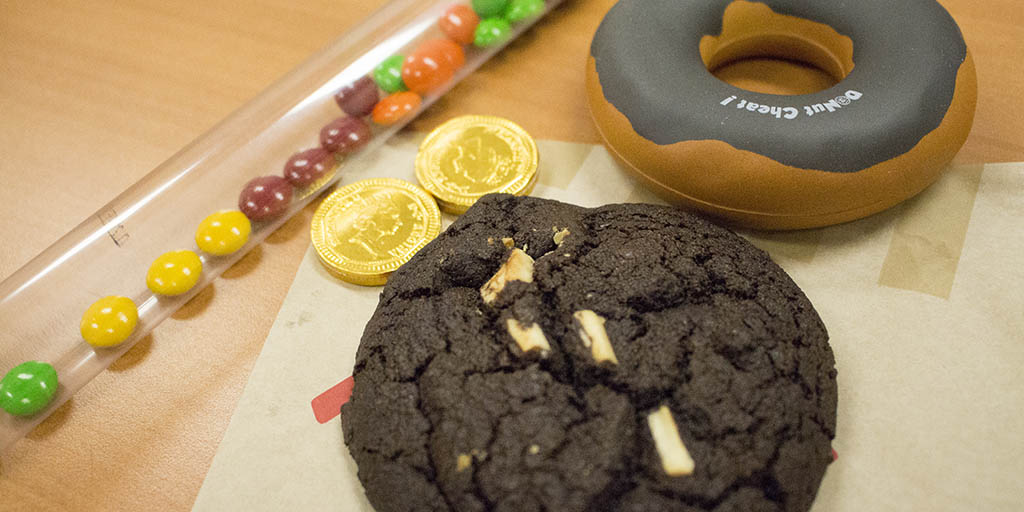Health and Fitness: What to do when you're about to eat your stress away
 CREDIT: MELISSA NOVACASKA
CREDIT: MELISSA NOVACASKAYou need to study right now, but instead you find yourself in the kitchen staring into the refrigerator hoping the eating will make you smarter for your big test tomorrow. It's true that your brain needs nutrients but if its 7 p.m. and you just ate dinner at 6 p.m., chances are this is a sign of stress eating.
Stress eating can also be a symptom of food addiction. Food addiction is as real as any drug or other addiction. The trouble is that we actually need food, but with food addiction, we find that we are eating too much or that we are not making great choices in the type of food. It can be really hard to combat food addiction and this requires talking to someone like a nutrition coach, dietitian or a medical professional that specializes in addiction.
Many people stress eat without being an addict. It happens all the time. This can be early stages of addiction or binge eating disorder (BED)�..or just simply that you are STRESSED out of your mind with school, work, home, etc.
What do you do in these moments? First, try breathing. Stand where you are and take 10 or more deep breaths. Put your hands on your ribcage and inhale through your nose allowing your rib cage to expand. Then exhale through your mouth and feel all the air release. In this time, think about what you really need. Maybe you just need a little break. Maybe you need some water. Maybe you need some rest.
Next, take a break without reaching for food first. It may just be 10 minutes of walking away from your stressor and resting your mind. You may just need to lie down and rest or read a chapter in a great novel.
Try drinking more water. Staying hydrated will help keep you alert. Ditch the coffee, alcohol and pop. Water is essential to survival and to cell function (which your body is made entirely of).
Eat healthier all the time and at regular intervals (morning, mid-day and evening). Make the healthiest choice you possibly can, especially when it comes to crunch time for that big test or project. Choose lots of vegetables, some fruit, lean meat or plant based protein, whole grains like brown rice, quinoa and oats, and calcium rich foods like plant based milk, dark greens, fish and almonds. Avoid as much packaged products and fast food as possible — even some of the seemingly healthy stuff is full of sugar, sodium or trans fat.
Exercise! Make time for exercise. Your brain will retain more information after a workout. Do something you like: weight lifting to build tension and then let go of that aggression and stress for relaxation and better studying later. Try a group exercise class to get in some social time, listen to heart pumping music and to get those happy endorphins going so you feel more positive about your homework. Go for a run to blow off steam. Bring your study group to the gym for some basketball.
After trying all of these, if you still find yourself in the kitchen looking for something satisfying, make an herbal tea and walk away while the water boils. Then return to pour and steep the tea and then go back to step one. Keep practicing each of these steps. You might not get them right or perfect the first time, but the more you practice them, the better at it you will become.
Stress eating can be caused from a number of things, but breathing, hydrating and eating healthy are some ways to combat over indulging














